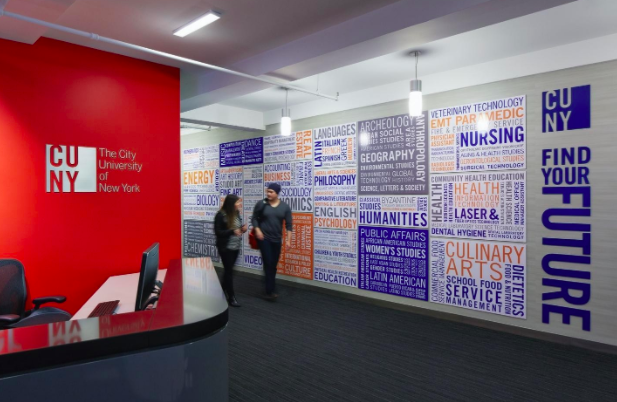I’m sure many of you reading this article remember your senior year of high school. A hectic fall trying to balance college applications with piling schoolwork, followed by an anxiety-ridden spring as results finally came in. For some of you, Queens College was the choice from the beginning, whether that was due to finances, locality, or academics. For others, QC may have been a fallback choice when other options didn’t pan out. Regardless of how you got here, I’m sure at some point during you’re time here you’ve wondered, “is CUNY worth it?” In my view, it unquestionably is.
Full disclosure, I come from a CUNY family. My father and grandfather are both Brooklyn College alums and my great-grandmother graduated from Hunter College back when it was still a woman’s-only college. In fact, I don’t think it would be a stretch to say that CUNY played a major role in helping my family- who were immigrants from Europe- advance into the middle class. To this day, CUNY has served as one of the greatest engines for an upward status in this country. A Brookings Institution report in 2020 found that six 4-year CUNY were ranked amongst the top 10 colleges in the U.S in terms of social mobility and another three were in the top 25. A key factor in this is CUNY’s exceptional, arguably unparalleled affordability.
According to the QC Bursar office, full-time tuition and fees at the school is about $7,536 per year for in-state students, a number that is quite low compared to most public universities. For comparison, one year at Rutgers-Newark in New Jersey-also an urban public university- is $14,826 for those who commute.
QC Senior Alexander Kestenbaum, a Jewish Studies major, claims that affordability is her main priority. “I actually decided to attend QC as opposed to George Washington simply due to costs. I plan on attending Divinity school and know how expensive that can be. Therefore, graduating debt-free, a hallmark of the CUNY appeal is important to me.” Additionally, New York State’s Excelsior program and TAP when combined with a CUNY tuition credit allows for financially needy students to attend CUNY tuition-free, something almost no other public universities in the country can offer. “
Of course, this remarkable success at helping students attain a quality education at a great price doesn’t mean CUNY is perfect. The system’s ever-present cuts in funding due to state and city budget restraints have resulted in many believing that the CUNY system is no longer the “Harvard of the Proletariat” that it once had the reputation of being. With that being said, a CUNY education is still a very reasonable option.
In closing, do I think CUNY is worth it? Absolutely. In a time when undergraduate student debt is turning into a major crisis, I consider it a privilege to be able to get a quality bachelor’s degree for a total cost that is lower than one year’s tuition at many private schools. Does the system have its issues? Absolutely. But it’s our duty as students and (in many cases) residents of New York to lobby our state and city officials to make funding CUNY a priority, as well as engage with campus and university system administration to ensure that resources are allocated properly. Let’s not be satisfied with attending a university with the best value education in the country. Let’s work to make CUNY the best higher-education system in the country.












There are some flaws with your ideas here when it comes to the idea of debt free as you’re claiming. If you don’t receive much financial aid or none at all, sure Excelsior can cover you, but it doesn’t cover the extra fees attached. It’s a last dollar type of program. The fees aren’t cheap, and while it might be “lesser” sometimes that’s not the idea of what people imagine debt free to look like. Not everyone can pay off those things easily. Secondly, this article would benefit to have more diverse majors, the popular ones, mentioned as well as first generation or underrepresented students. It becomes tone deaf. The vast majority of cuny students are of the BIPOC community and it would be wonderful to hear from them. The article has its flaws, while you acknowledge that the system has its issues, those who are part of those marginalized groupings and those popular majors can serve more information.